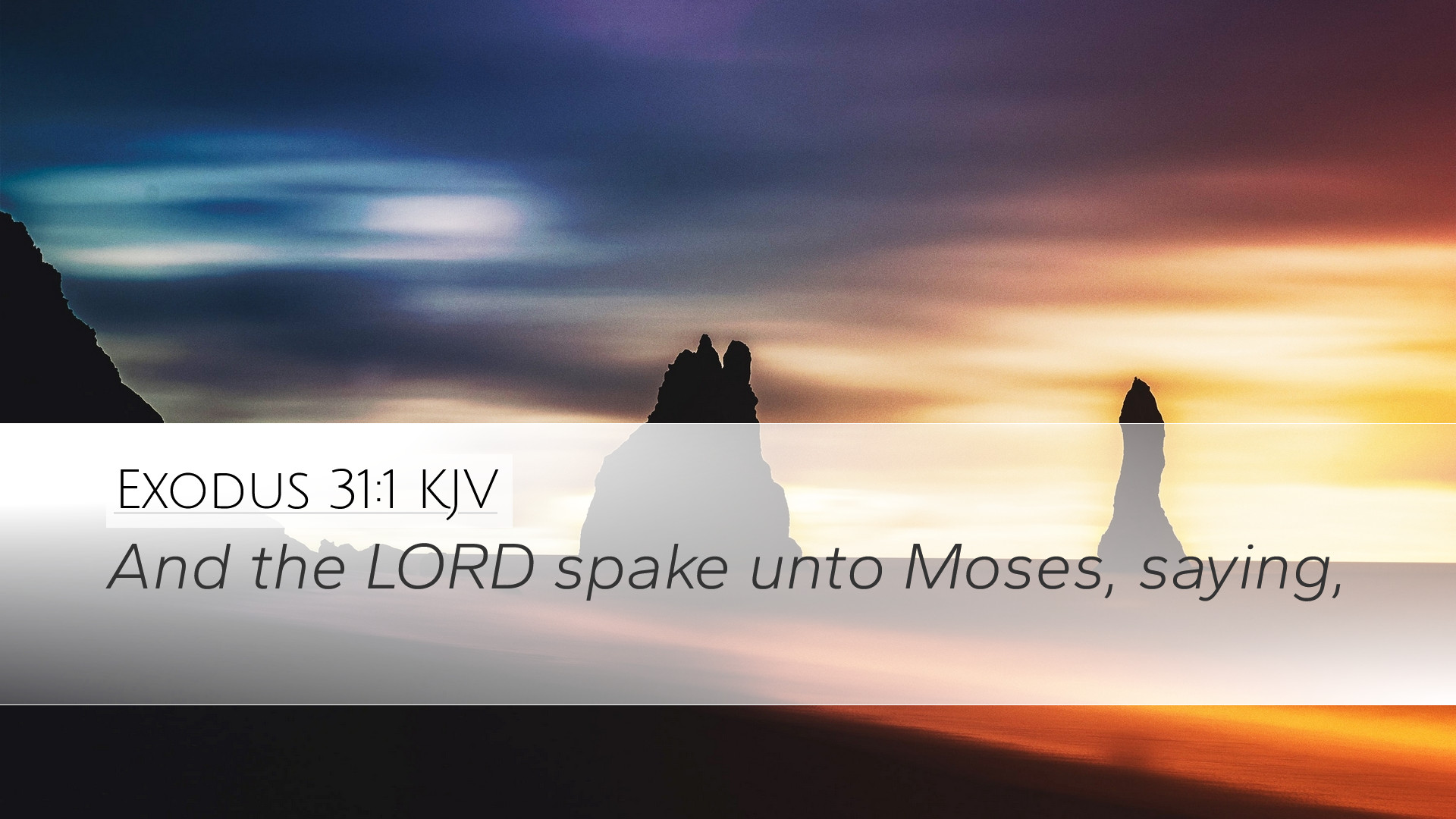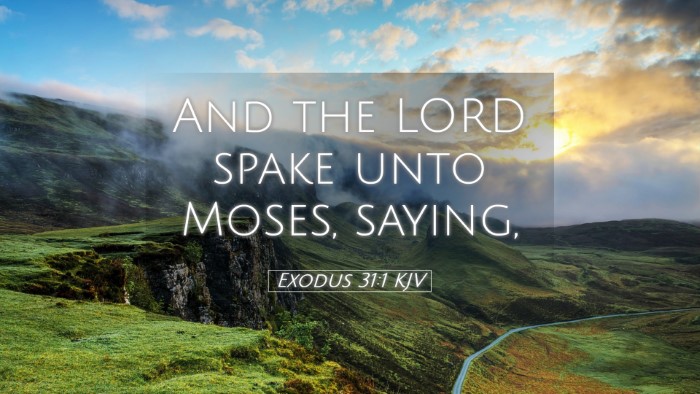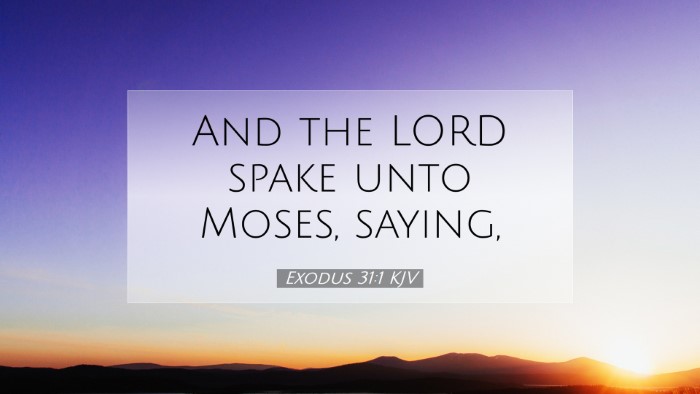Exodus 31:1 - Commentary Summary
This verse introduces a significant moment in the narrative of the Exodus, where God calls a specific individual to fulfill a vital role in the construction of the tabernacle. The implications of this verse stretch into themes of divine calling, skillfulness in service, and the sanctity of craftsmanship.
Text of Exodus 31:1
"And the Lord spake unto Moses, saying,"
Contextual Background
In the broader context of Exodus, this verse occurs after God has provided extensive instructions regarding the construction of the tabernacle and its furnishings. It emphasizes the importance of dedicated service to God through appointed individuals.
Commentary Insights
-
Matthew Henry's Commentary:
Henry emphasizes the sovereign choice of God in appointing skilled individuals for tasks of worship. God, in His wisdom, selects Bezalel to oversee the work, showing that He equips those whom He calls. This instance serves as a reminder that God does not simply demand excellence in service but also provides the necessary abilities for fulfilling His commands.
-
Albert Barnes' Notes:
Barnes draws attention to the specific mention of Bezalel, which highlights God's intention to choose individuals with unique skills for sacred duties. He notes that the call is not based solely on skill but is rooted in the ability to perform tasks in accordance with divine requirements. This underscores the holiness expected in the undertaking of God's work.
-
Adam Clarke's Commentary:
Clarke elaborates on the term 'calling' in this context. He points out that this divine appointment reflects God’s authority and the necessity of obedience in fulfilling divine tasks. Furthermore, he discusses what it means to be divinely inspired in one's vocation, suggesting that true skill and adeptness in any craft ultimately comes from God’s Spirit.
Theological Implications
This verse beckons readers to reflect on the nature of divine calling and the intrinsic connection between spiritual and vocational life. The idea that God endows people with the abilities and creativity necessary for ministry introduces significant theological discussions on:
- The Doctrine of Vocation: Every task done in service of God, whether in the church or secular environments, has spiritual significance.
- Spiritual Gifts: This passage opens a dialogue about the various forms of giftedness and their place in worship and ministry.
- Holiness of Work: The divinity of the work illustrates that labor dedicated to God is sacred and worthy of His attention.
Practical Applications
For pastors, students, and theologians, this verse encourages the exploration of how God continues to call and equip individuals today. Considerations may include:
- How do we discern God’s calling in our lives and the lives of others?
- In what ways can we cultivate and celebrate the diverse gifts within our communities?
- How can our work in church and culture reflect the holiness that God calls us to?
Conclusion
Exodus 31:1 serves as a powerful testament to God’s sovereignty and the necessity of His guidance in equipping His servants. The recognition that God actively calls individuals to specific tasks instills a profound sense of purpose and responsibility in fulfilling His designs.


